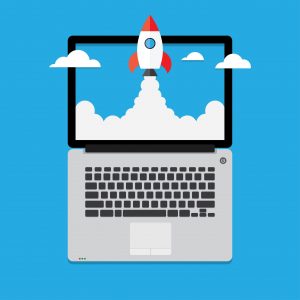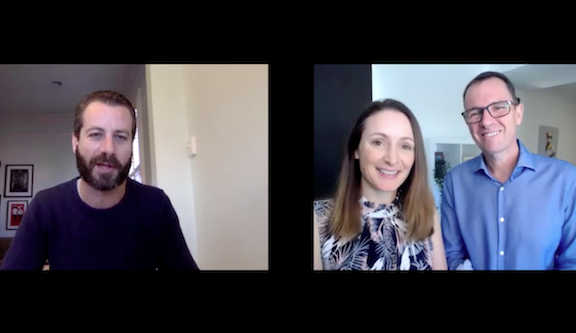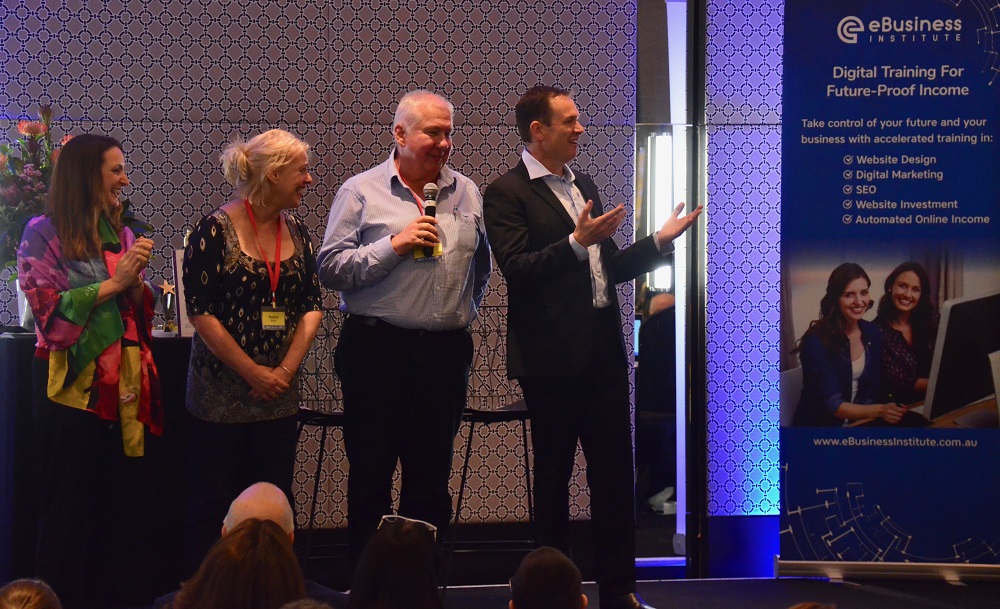 Businesses and employees today fall into two categories: those that have already been disrupted by digital…and those that are about to be!
Businesses and employees today fall into two categories: those that have already been disrupted by digital…and those that are about to be!
And thanks to emerging technologies like the cloud, mobile apps and big data, plus more informed and connected consumers, conducting business has forever changed.
Digital disruption refers to the rapid changes that are happening in social, political and economic areas due to the development of new technologies, especially when those new technologies force us to change the way we usually do something, or change the way we think.
In many cases that disruption ends up being of great benefit – improving efficiency, health or effectiveness, or reducing waste or cost. But often those changes have a drastic negative effect on those who don’t keep up.
Some business
owners take a “grin and bear it” approach to the disruption, while others rail against it with all their might and budget allocation.
The truth is, digital disruption is neither good or bad, it simply is. Businesses who want to stay relevant and competitive had better learn to adapt by continually asking themselves, “What are our competitors doing to disrupt our business model and what can we do to stay ahead?”
How Television Was Disrupted by the Digital Age
For decades, the CBS, NBC and ABC networks in the United States were the only game in town. Because they ruled the airwaves, they could pretty much charge whatever they wanted for advertising. The same was true here in Australia, with three major TV stations dominating the market.
Then Hulu, Amazon, Netflix and Stan came along, allowing people on-demand digital access to popular TV shows and movies. This completely disrupted the paradigm and has caused the major TV networks to adapt, which most are still in the process of doing. Though they can still charge for advertising, the networks cannot charge anywhere near what they once did. Today’s television networks must use a multi-channel approach to monetize their entertainment products.
And of course these days its not just limited to the big corporates or traditional media agencies – any one of us working from home can now compete on the worldwide market as a viable “small” media agency by simply creating our own online presence and getting a following. Thanks to the new digital age an yone of us can now potentially disrupt the traditional TV niche by creating our own alternative TV via such channels as YouTube or Vimeo for virtually free! This is truly digital disruption when someone working from home with basically no budget can amass a following of devoted viewers on YouTube of millions or even tens of millions of viewers.
What’s Driving This Digital Disruption?
Believe it or not, it’s you and me driving digital disruption. Today’s consumers look almost nothing like consumers of 20 years ago. They want, nay, demand to consume media on their own terms, and with so many choices in delivery channels, they can.
The bottom line is, consumer preferences and expectations are completely reshaping engagement and the customer journey. This has caused businesses across all industries to make a shift and start learning more about the relationships between technology and their customers’ behavior. Once businesses start connecting the dots and redefining how they create consumer experiences, they will in turn leverage technology to create value through the customer’s lifecycle. Either that or pack it up and go home.
How is Digital Disruption Shaping Australia’s Workforce?
 According to a recent Harvey Nash Survey, roughly 56% of Australian Chief Information Officers say their companies have been affected by digital disruption. In fact, two-thirds of respondents reported that digital disruption caused a significant change to their business operations, driving them to create new models and bring new products and services to market faster than ever before.
According to a recent Harvey Nash Survey, roughly 56% of Australian Chief Information Officers say their companies have been affected by digital disruption. In fact, two-thirds of respondents reported that digital disruption caused a significant change to their business operations, driving them to create new models and bring new products and services to market faster than ever before.
With Australia a prime target for new and emerging technologies, it was only a matter of time before the disruption was felt close to home. Australian businesses are starting to realise they must focus on digital activities and outcomes, which has caused many leaders to turn to outside digital marketing help.
The survey reported that CIOs from Australia were more likely to outsource their digital needs. In fact, 59% of businesses were expected to increase their outsourcing in the coming years, 13% more than their global counterparts.
In his new book, “Digital Disruption in Australia: A guide for Entrepreneurs, Investors and Corporates,” Nick Abrahams, one of Australia’s most prolific technology lawyers, is quick to point out that many of the jobs people have today in this country will not exist in 5 to 10 years.
“Frankly, we don’t need more lawyers. We need different skills, let’s have more data scientists, social media identities and user-experience experts. Our universities have a duty to their students to give them an education that will set them up for this new world.”
As digital disruption continues to reshape and redefine how business is conducted in this country, one thing is very clear: with so many businesses dependent on the digital marketing skills of others, there has never been a better time to receive digital training and cash in on this new revolution.
So if you are looking for a career change or a way to create your own digital disruption working from home then check out some of the eBusiness Institute’s digital training courses here.



